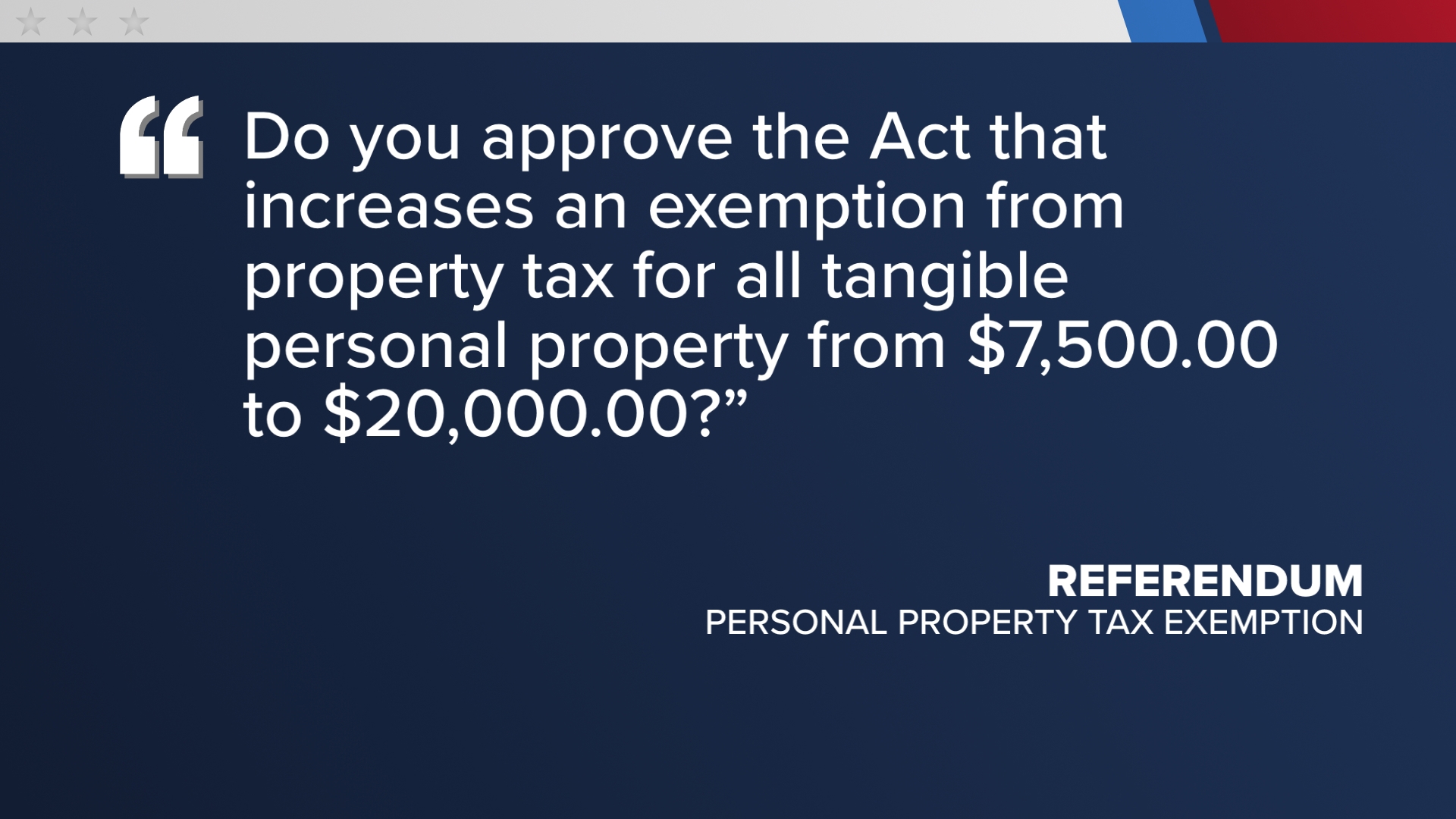MACON, Ga. — Over the past few years, we've seen property values in many places in Georgia skyrocket.
With these increases in property values, Georgia's legislature passed a bill — House Resolution 1022 — that would change how property taxes are assessed on people's main residential homes, if voters sign off on it.
Now, the so-called Georgia Resolution 1 is on the ballot, but what does it do? Here's a simple explainer:
What is printed on your ballot:
"Shall the Constitution of Georgia be amended so as to authorize the General Assembly to provide by general law for a state-wide homestead exemption that serves to limit increases in the assessed value of homesteads, but which any county, consolidated government, municipality, or local school system may opt out of upon the completion of certain procedures?"
Vote Yes: You want Resolution 1 to implement a statewide homestead exemption.
Vote No: You do not want Resolution 1 to implement a statewide homestead exemption.
What does that mean?
Ad Valorem taxes are more commonly known as property taxes.
The homestead exemption is a provision that helps you pay less on your property taxes, but it only applies to properties that 1. you occupy and are 2. considered your legal residence, according to the Georgia Department of Revenue.
If you qualify, then you can apply for a homestead exemption. That wouldn't change.
But what will change is how local governments assess property taxes on your homestead-exempt home. However, it is important to highlight that local governments can opt out of this amendment if passed.
Essentially, this ballot resolution would have local governments cap property value increases to the rate of inflation on homestead exemption properties.
If your property value increases faster than inflation, then the taxable value of your home would not be your property's current value, as would be the case right now.
Instead, the tax assessor would look at your previous year's property value plus the rate of inflation.
This way the taxable value of your home, in theory, would be capped at inflation.
The amendment would apply only to residential homes, and those who have already opted into a homestead exemption would automatically qualify. If you don't have a homestead exemption, you would have to apply for it.
However, the law carves out some exceptions.
Local governments can opt out of the statewide homestead exemption, meaning they can continue taxing properties in the same way they always have.
Additionally, the law does not stop local governments from increasing their millage rate to cover the revenue lost from the property value cap.

